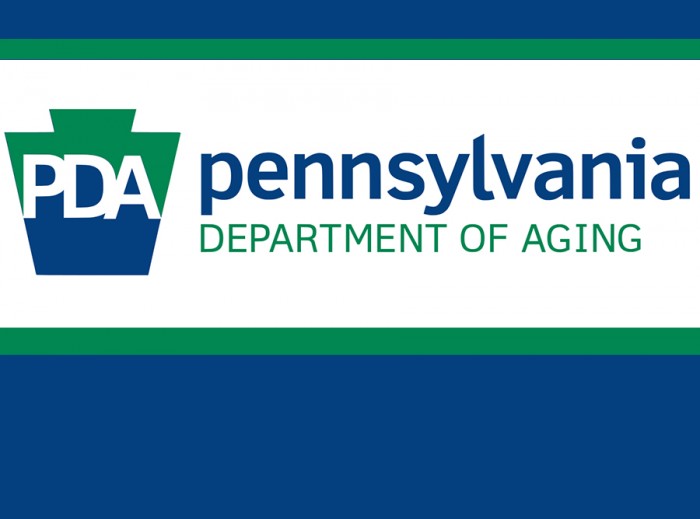CONNECTIONS Webinar: How to Leverage Time Banking for Yourself and People with Disabilities
Governor Wolf Expresses Appreciation to Direct Care Workers
Pennsylvania Governor Tom Wolf has released a video message (use this link for high quality download) to give thanks to Pennsylvania’s Direct Support Professionals, Direct Care Workers, and Personal Care Assistants. In his video he recognizes the important role that these workers fulfill particularly during the additional challenges with COVID-19. Please share with all Direct Support Professionals, Direct Care Workers and Personal Care Assistants.
A Message to Nurses from Secretary Teresa Miller
Wolf Administration Receives Approval to Launch Food Access Program for Students During COVID-19 Crisis
Commonwealth Civilian Coronavirus Corps to Support Fall COVID-19 Recovery Efforts
Gov. Wolf Signs Executive Order to Provide Civil Immunity for Health Care Providers
Gov. Wolf Signs Executive Order to Provide Civil Immunity for Health Care Providers
May 06, 2020
Today, Governor Tom Wolf signed an executive order to afford health care practitioners protection against liability for good faith actions taken in response to the call to supplement the health care provider workforce during the COVID-19 pandemic.
RCPA Annual Membership Webcast & Member Vote May 12
Office of Advocacy and Reform Announces Plan to Build a Trauma-Informed Pennsylvania
FOR IMMEDIATE RELEASE
May 7, 2020
View Online
Harrisburg, PA – The Office of Advocacy and Reform (OAR), established by Governor Tom Wolf’s 2019 executive order to protect Pennsylvania’s vulnerable populations, today announced the launch of a volunteer think tank comprised of 25 experts representing a diversity of fields and backgrounds who will develop a plan to make Pennsylvania a trauma-informed state.
“The people of Pennsylvania are compassionate, thoughtful and resilient. We take care of each other, and that drive to protect our families and our neighbors has never been more obvious than these past few months as we’ve bonded together to fight COVID-19,” said Gov. Wolf. “This group of experts, led by the Office of Advocacy and Reform, will build on this foundation to ensure that local and state government agencies use trauma-informed principles to guide all decisions that affect Pennsylvanians and that we continue to improve our systems that protect vulnerable populations. Thank you to these volunteers for their efforts to build a trauma-informed Pennsylvania.”
As a companion to the governor’s multi-agency effort and anti-stigma campaign, Reach Out PA: Your Mental Health Matters, aimed at expanding resources and the state’s comprehensive support of mental health and related health care priorities in Pennsylvania, OAR announced in January that the agency was looking for a group of cutting-edge thinkers and practitioners in the field of trauma, and how the brain heals from its effects, to form a think tank.
The group will focus on setting guidelines, benchmarks, and goals for trauma-informed care across the commonwealth. In addition, the group is also expanding its original mandate to strategize how to heal the trauma that all Pennsylvanians are experiencing due to the COVID-19 pandemic.
“Our work is more important than ever,” said Dan Jurman, Executive Director of the Office of Advocacy and Reform. “Every Pennsylvanian is experiencing trauma and toxic stress right now, affecting the behavioral health of each and every one of us.”
The 25 experts chosen to participate are from urban, suburban, and rural communities throughout the commonwealth and represent the fields of psychiatry, psychology, law enforcement, county government, clergy, social work, counseling, mindfulness, community development, education, sexual assault recovery, addiction recovery, domestic violence services, child maltreatment solutions, nursing, public health, pediatric medicine, prison re-entry, and philanthropy. Photos and bios of think tank members are available here.
“The diversity of experiences and perspectives represented in this group will be absolutely key to the success of our mission,” Jurman said. “I’m grateful to everyone who raised their hand to help, and I look forward to working with this group on a plan that will make a positive difference in the lives of so many vulnerable Pennsylvanians.”
The think tank will meet several times over the next few months to collaborate on setting trauma-informed standards that can guide the work of state agencies, as well as local government and nonprofit organizations across the commonwealth. When the first phase is completed, the members of the think tank who wish to continue serving will shift to an advisory role, helping OAR build a network of trauma-informed providers who learn from each other, support pilots and innovation, share best practices, and push the initial guidelines even further over time as our understanding of brain science and trauma-informed approaches evolves and broadens.
Another 43 think tank applicants who weren’t chosen to participate in this first phase of plan development have been invited to assist with building the statewide network.
OAR plans to make the resulting plan to transform Pennsylvania into a trauma-informed state public in July.
“This current crisis has shown us all how vulnerable we are,” Jurman added, “This is our chance to eliminate stigma and misunderstanding and replace them with knowledge about how the brain works and empathy for each other to fundamentally change the way we approach trauma as a commonwealth.”
MEDIA CONTACT: Lyndsay Kensinger, Governor’s Office, ra-gvgovpress@pa.gov
Erin James, DHS, ra-pwdhspressoffice@pa.gov
# # #
Department of Aging Receives $3 Million to Support Aging and Disability Resource Centers During Pandemic
FOR IMMEDIATE RELEASE
May 6, 2020
Harrisburg, PA — The Pennsylvania Department of Aging’s Aging and Disability Resource Centers (ADRC) Office has been awarded $3 million from the Department of Health and Human Services’ Administration for Community Living to support efforts to mitigate and respond to the COVID-19 pandemic.
The ADRC, also known as the PA Link to Aging and Disability Resources, is a statewide program that provides information and referral services to older adults and individuals with disabilities. This program helps individuals with activities of daily living by connecting them with medical and non-medical supports and services. Consumers, family members, caregivers and providers, can contact the PA Link through the helpline,1-800-753-8827, or at www.aging.Pa.gov/local-resources/pa-link.
Funds from this grant will enable the PA Link to support the operations and capacity of the aging and disability network, increase coordination of efforts and provide critical access to services for those populations most at risk from COVID-19.
“During COVID-19, being able to obtain information and access support services is a vital concern for older adults, persons with disabilities and their caregivers,” said Aging Secretary Robert Torres. “The PA Link provides seamless connection to a vast array of services, supports and person-centered counseling delivered in local communities throughout the Commonwealth. This federal funding will help PA Link boost capacity and improve connectivity to serve consumers during this pandemic and beyond.”
The PA Link will use the grant funds to administer the following activities:
Virtual Management of ADRC Access Functions: Implement e-services for PA Link staff and partners to improve business operations related to accessing PA Link programs.
Care Transition Services: Assist those most at risk of COVID-19 who are seeking transitional support from hospital or nursing home to a home setting.
Food Order and Delivery: Collaborate with local grocery stores, restaurants and/or online/mobile food order and delivery services to provide delivered groceries and food.
Assistive Technology: Help older adults, individuals with disabilities, caregivers and care providers learn how to use telehealth technologies to provide and receive needed services. The Department will partner with the Assistive Technology Act program to provide assistive technology assessments, devices and training.
Personal Protective Equipment (PPE): Provide PPE for community partners to ensure in-home supports can be maintained safely.
Marketing of PA Link Helpline and Outreach: Increase public awareness of the PA Link helpline,1-800-753-8827.
Reduce Social Isolation: Provide individuals with the ability to request periodic check-in calls by trained staff and increase awareness of low-cost programs that connect individuals through broadband and telecommunication equipment.
Information and Counseling Services: Increase the capacity of the PA Link network partners to respond to requests from individuals in need of resource information, assistance with referrals and person-centered counseling.
Visit the PA Department of Health’s dedicated Coronavirus webpage here for the most up-to-date information regarding COVID-19.
Learn more about the various programs offered by the Pennsylvania Department of Aging here.
MEDIA CONTACTS: Karen Gray: 717-705-3702 or karengray@pa.gov
Jack Eilber: 717-585-4045 or jeilber@pa.gov
# # #
















